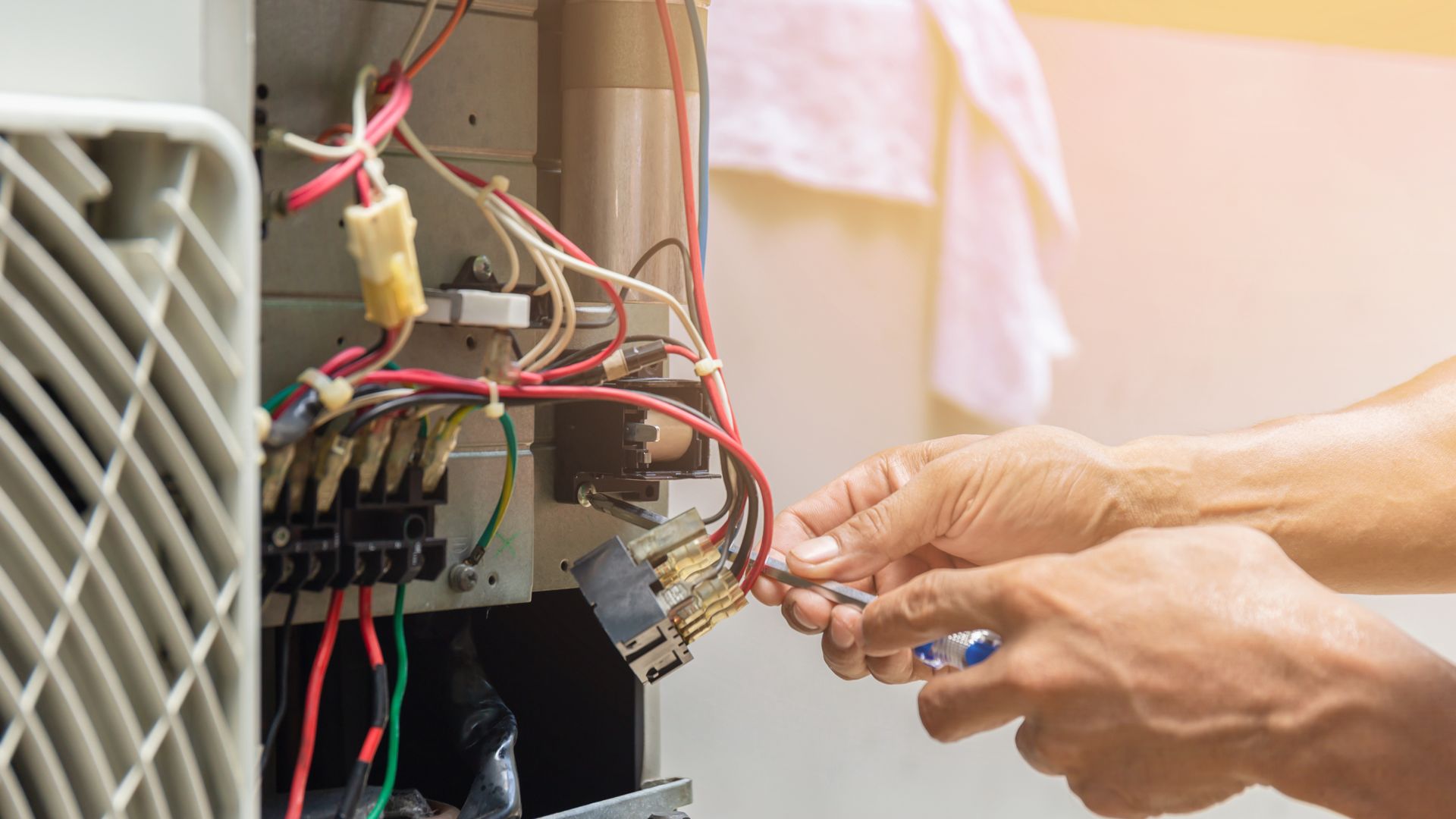When winter arrives, and the temperatures drop, you may wonder how you will keep your home warm without depending on conventional heating systems. Introducing the heat pump, an adaptable and energy-efficient heating solution that's effective even on the coldest days of the year in Ontario. But how exactly does a heat pump work in the winter? During this discussion, we'll look at how a heat pump operates and why it may be a beneficial investment for you as a homeowner.
So, take a seat and let's dissect how a heat pump keeps you warm when the weather gets chilly.
How Does a Heat Pump Work During Winter?
During the winter, a heat pump functions by extracting the heat from the air outside and transferring it inside to warm your living area using heat transfer concepts. Despite the cold temperatures outside, thermal energy exists in the air, which the heat pump can gather for heating purposes.
The following is a more simplified explanation of how a heat pump works when it is in heating mode:
- Air Circulation: The heat pump uses a fan to draw in outdoor air through the unit that is outside.
- Heat Absorption: Even in frigid conditions, a refrigerant within the heat pump absorbs heat from the outside air.
- Compression: The compressor raises the pressure and temperature of the refrigerant, thereby increasing its heat energy.
- Heat Release: The absorbed heat is released into the indoor air by the hot refrigerant within the indoor unit.
- Air Distribution: A fan circulates the warmed air throughout your home.
The heat pump provides efficient heating for your home by continuously extracting heat from the outdoor air and transferring it indoors. It works on the premise of moving heat rather than producing it, making it a more energy-efficient heating alternative than standard fuel-burning heating systems, which release greenhouse gases into the environment. And, because heat pumps are more energy-efficient than other types of heating methods, these types of HVAC units are great options for homeowners who want to save money on their utility costs throughout the year!
Does a Heat Pump Struggle in Winter?
Heat pumps are built to provide adequate warmth even in the coldest months of winter. However, it should be mentioned that a heat pump's performance ability can significantly decrease as temperatures get colder.
As the temperature outside drops, the heat pump will need to work harder to extract heat from the outside air and heat your indoor space. As a result, heating capacity, as well as effectiveness, may be diminished. In colder climates, the heat pump may activate its supplemental heating system to provide adequate warmth without costing you an arm and a leg. It is worth noting that advances in heat pump technology have further enhanced their ability to function efficiently in colder temperatures. Some heat pump models have been developed for colder climates and will operate effectively in temperatures below freezing (as low as -15 degrees Celsius).
Regardless, homeowners must schedule a maintenance appointment at least once a year to make sure their heat pumps are in good working order to heat their homes during the winter.
What Is the Best Way to Use a Heat Pump in the Winter?
Homeowners will need to consider the following tips to get the most out of their heat pump this winter season:
- Set a constant temperature: Instead of modifying the thermostat frequently, choose an appropriate temperature and stick to it. Changing the ambient temperature often can have an impact on the heat pump's efficiency and performance as a whole.
- Stay away from extreme temperature modifications: If you're leaving your home for an extended amount of time, avoid entirely switching off the heat pump. Program the temperature a couple of degrees lower to keep the indoor temperature reasonably constant. This allows the heat pump to use less energy while you're away while also preventing it from having to work too hard to reheat the interior when you come back.
- Keep your outdoor unit clean and unobstructed: Keep snow, ice, and debris away from the outdoor unit. This ensures adequate airflow and allows the heat pump to operate efficiently.
- Think about additional heating techniques: If your heat pump is unable to meet heating demands during icy conditions, you can supplement heating with a backup furnace, boiler, or even fireplace to provide extra warmth to specific areas.
If you're worried about heating your home efficiently during the winter while providing a comfortable interior, we suggest reaching out to a certified HVAC technician. They will be able to offer you recommendations on how you can upgrade your interior comfort based on your needs.
Do I Need to Do Anything to My Heat Pump in Winter?
Yes, there are some things that you should think about doing for your heat pump during the colder months in order to ensure peak performance and protect it from problems.
Here are some suggested steps:
- To guarantee adequate ventilation, clear and clean the area around the outdoor appliance.
- For maximum efficiency, inspect and clean the air filters.
- Remove dirt and debris from the outdoor coils by inspecting and cleaning them (this should be performed by a certified HVAC technician only).
- Check for proper drainage to avoid water damage.
- Consider having a professional maintenance check performed to address any potential problems.
Do you want to keep your home cozy during the chilly Ontario winters while saving money? If the answer is yes, installing a heat pump could just be the ideal solution for your home! The team at Limcan Certified Heating and Air Conditioning has numerous years of experience partnering with homeowners throughout Peterborough, Uxbridge, Port Perry, and surrounding communities! We offer a diverse selection of heat pumps that we can customize to your needs and budget! Call one of our team members to schedule a consultation appointment today! All initial consultation appointments come with a complimentary, non-obligatory new system purchase quote from our expert home comfort advisors!







